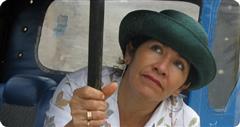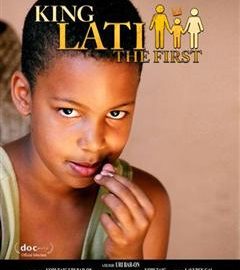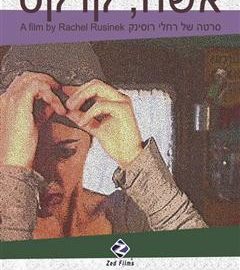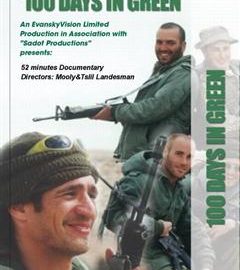
Archives


Baghdad Bandstand

King Lati the First

Gole Sangam
Gole sangam is the stone flower in Farsi. The flower that can bloom only from the stone (cyclamen). The film follows two elderly Jewish women, Ilanit and Naima, who immigrated from Iran to Israel 50 years ago and live in a slum. Married at the tender ages of 12-16, they moved from the dominated homes of their parents to those of their husbands. Ilanit lived with a husband who humiliated and beat her but still she took care of him when he became sick. Naima has good relations with her husband, surrounded with her children and grandchildren, but has always served them and fulfilled their wishes and dreams. Now, 70 years old, they reflect on the choices they have made and the choices they were forced to make.
Sarit, the director, an Israeli-born Iranian Jew, 30 years old and unmarried is trying to find through the past of Ilanit and Naima some answers about the future of her relations.
The film raises questions about love, relations, femininity and dreams.

Last Cannon Shell

The Escape Artists

August: A Moment Before the Eruption
In an absurdist romp reminiscent of Nanni Moretti’s Dear Diary, Mograbi sets out to make a film about what it is he hates about August in Israel. After a series of false starts derided by his wife as morbid and uninspiring, the true theme of his project emerges: recording people’s reactions to his own artifice as filmmaker. Arab workers, wealthy Jewish suburbanites, soccer yobs, Palestinian stone throwers and Israeli policemen – no one escapes the dogged gaze of his camera, the acerbic righteousness of his wit. A curious, scathing satire of a society fuelled by hatred, intolerance and misunderstanding.

100 Days in Green

Warrior of Love

A Working Mom
A story which demonstrates the extremes Mothers would go to, in order to save their families – sometimes saving and losing them in the same act. In 1990, 22-year-old Marisa Villozial, left her 3-year-old son and her infant daughter with her parents in Bolivia, and traveled oversea to look for a job in the West. She spent fifteen years doing hard menial labor in Israel, sending her pay home, following the growth of her children only through periodic phone calls. In February 2005, Marisa returned to Bolivia to reunite with her children and family and try to become a real mother. Marisa’s return to Cochabamba was a very emotional and upsetting one. Her children, now 16 and 18, were quiet apathetic not to say hostile toward her. They both insisted on calling her Auntie and not Mother, and refused to listen or spent time with her. The house that was to have been built for her with the money she sent turned out to be only a skeleton of a house. With teary eyes she realized she was misled, and that the money she’d sent to her father for the house had been squandered. Her story is a real-life family drama that reflects powerful and painful global themes: poverty, preservation of culture, alienation and is placement in the new global economy. It is an individual story that is the most universal story of our times.
